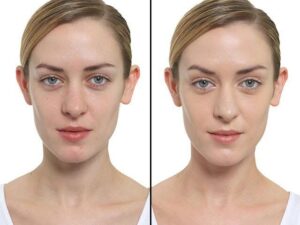Introduction
In the quest for flawless skinflawless skin, many individuals turn to skincare products that promise miraculous results. Among such products, Bismid creams have gained popularity for their purported skin-lightening and anti-aging properties. However, while these creams may seem like a shortcut to achieving radiant skin, they come with potential side effects that should not be overlooked. This article delves deep into the side effects of Bismid creams, providing you with a well-rounded perspective on their use, risks, and safer alternatives.
What Are Bismid Creams?
Bismid creams are a line of skincare products marketed as solutions for various skin issues, including hyperpigmentation, acne scars, dark spots, and uneven skin tone. These creams are particularly popular in regions where skin-lightening products are in high demand.
Bismid creams are often advertised as containing potent ingredients that deliver fast results. However, the lack of transparency about their formulations and the potential for harmful additives has raised concerns among dermatologists and consumers alike.
Ingredients in Bismid Creams: The Good, the Bad, and the Ugly
The Good
Some Bismid creams include ingredients like:
Vitamin E: Known for its antioxidant properties, it helps in reducing free radical damage and promoting skin healing.
Hyaluronic Acid: Helps retain moisture, keeping the skin hydrated and plump.
Niacinamide: Reduces inflammation and improves skin texture.
The Bad
However, certain ingredients may cause mild reactions, such as:
Fragrances: Can lead to skin irritation or allergic reactions in sensitive individuals.
Preservatives: Although necessary for shelf life, some preservatives can trigger contact dermatitis.
The Ugly
The most concerning aspect of Bismid creams lies in the potential inclusion of harmful ingredients, such as:
Hydroquinone: A skin-lightening agent banned or restricted in many countries due to its association with ochronosis (a skin discoloration condition) and carcinogenic risks.
Steroids: Prolonged use of topical steroids can lead to skin thinning, stretch marks, and hormonal imbalances.
Mercury: An illegal additive in many unregulated skin-lightening products, mercury is toxic and poses serious health risks.
Immediate Side Effects of Bismid Creams
Skin Irritation
Many users report experiencing redness, itching, and a burning sensation shortly after applying Bismid creams. This is often due to harsh chemicals or allergens in the product.
Allergic Reactions
Ingredients like hydroquinone and fragrances can trigger allergic reactions, resulting in hives, swelling, and discomfort.
Breakouts
Ironically, some creams meant to clear acne may clog pores and exacerbate breakouts, particularly if they are oil-based or contain comedogenic ingredients.
Long-term Risks of Using Bismid Creams
Skin Thinning
Prolonged use of creams containing steroids or hydroquinone can lead to skin thinning, making the skin more susceptible to bruising, tearing, and infections.
Hyperpigmentation and Hypopigmentation
Instead of evening out the skin tone, some ingredients may cause uneven pigmentation over time, leading to unsightly patches.
Hormonal Disruption
Steroid-laced creams can interfere with the body’s hormonal balance, potentially causing systemic side effects such as weight gain, high blood pressure, and suppressed immunity.
Kidney and Liver Damage
If Bismid creams contain mercury, they can accumulate in the body over time, leading to severe damage to the kidneys and liver
Cancer Risks
Prolonged exposure to hydroquinone has been linked to increased risks of developing certain cancers, making its use a significant health concern.
Who Should Avoid Bismid Creams?
While Bismid creams may be tempting, certain groups should steer clear, including:
Pregnant and Nursing Women: Ingredients like mercury and steroids can harm fetal development and may pass into breast milk.
Individuals with Sensitive Skin: Those prone to allergies or irritation should avoid potentially harsh formulations.
People with a History of Skin Conditions: Conditions such as eczema or rosacea may worsen with the use of Bismid creams.
Safe Alternatives to Bismid Creams
Natural Remedies
Aloe Vera: Soothes the skin and reduces reredness.
Turmeric: Known for its anti-inflammatory and skin-brightening properties.
Lemon Juice: A natural exfoliant that can lighten dark spots over time.
Dermatologist-Recommended Products
Opt for skincare brands with clinically tested and dermatologist-approved products, free from harmful additives.
Medical Treatments
Chemical Peels: Safely performed by professionals, these can address hyperpigmentation and uneven skin tone.
Laser Therapy: A more advanced option for treating dark spots and improving skin texture.
What to Do If You Experience Side Effects
1. Discontinue Use: Stop using the product immediately if you notice any adverse effects.
2. Consult a Dermatologist: Seek professional advice to assess the damage and receive appropriate treatment.
3. Use Soothing Products: Incorporate products with calming ingredients like aloe vera or chamomile to soothe irritated skin.
4. Stay Hydrated: Drinking plenty of water can help flush out toxins from your system.
Frequently Asked Questions (FAQs)
1. Are Bismid creams safe for daily use?
No, many Bismid creams contain potentially harmful ingredients that can cause long-term damage with daily use.
2. Can Bismid creams permanently lighten skin?
While they may provide temporary results, the risks and potential rebound hyperpigmentation make them unsuitable for long-term skin lightening.
3. How can I identify harmful ingredients in Bismid creams?
Always check the ingredient list for substances like hydroquinone, steroids, and mercury. If the product lacks clear labeling, it’s best to avoid it.
4. Are there any regulations on Bismid creams?
In many countries, the sale of products containing high concentrations of hydroquinone or mercury is restricted. However, unregulated markets may still sell these creams.
Conclusion
While Bismid creams promise quick fixes for skin concerns, the potential side effects, ranging from irritation to serious health risks, outweigh the benefits. Understanding the ingredients and their impacts is crucial for making informed choices about skincare. Opt for safe, dermatologist-approved alternatives and consult professionals if you encounter adverse reactions. Prioritizing your skin’s long-term health is the best way to achieve lasting beauty.



